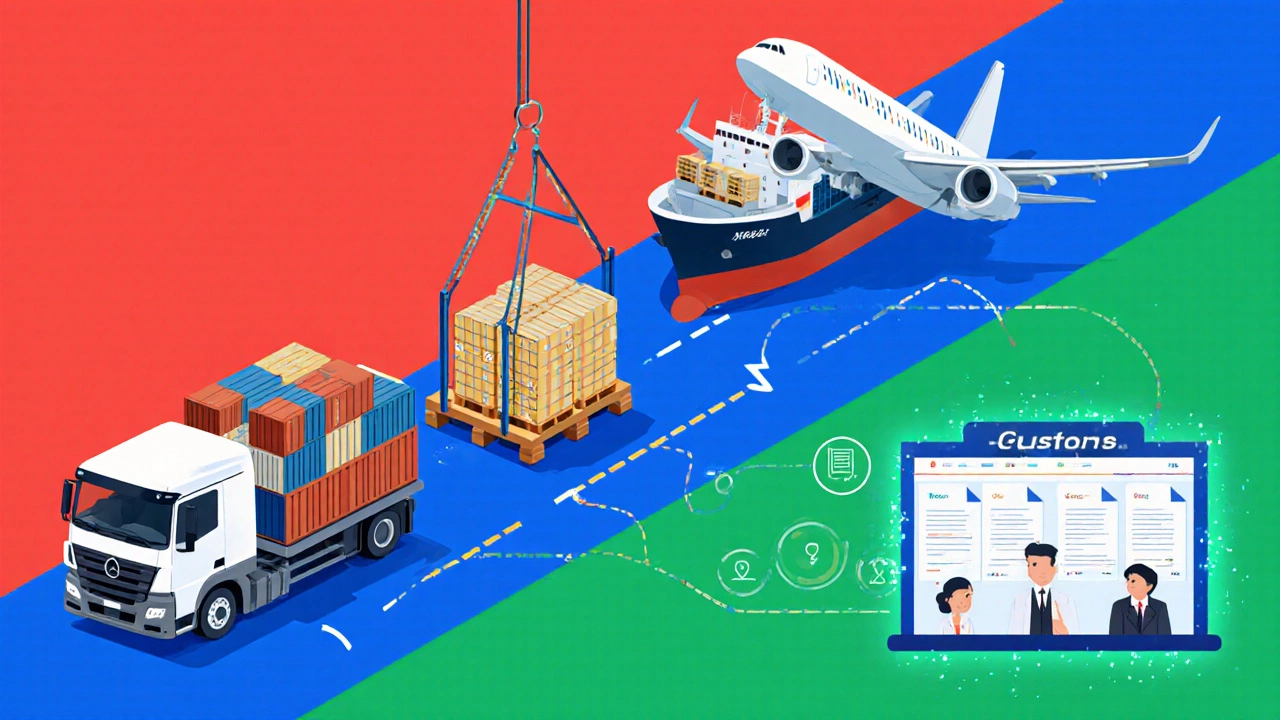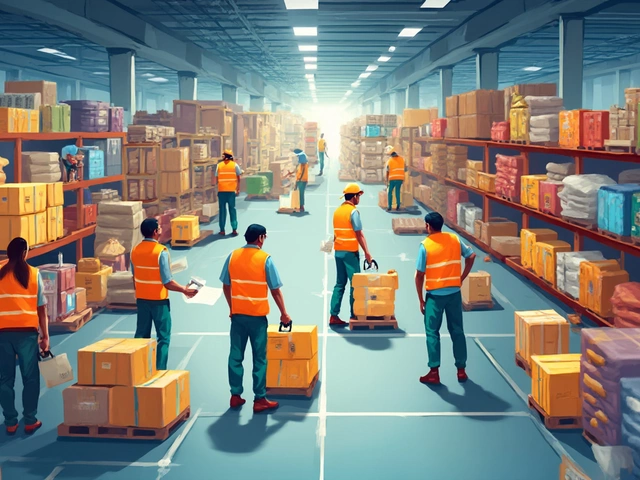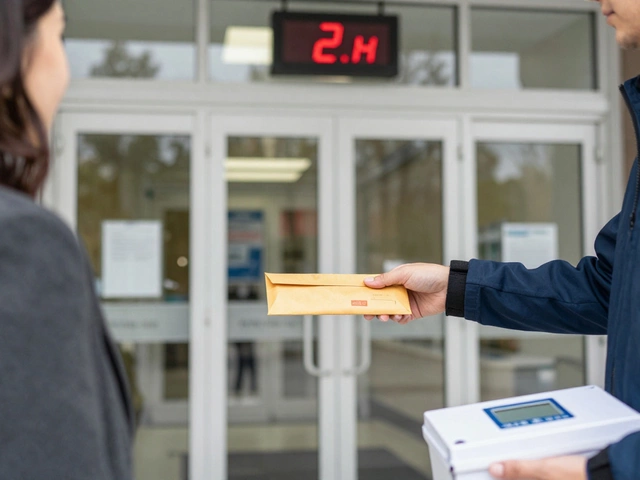Freight Forwarder Service Calculator
Shipment Details
Estimated Forwarding Cost
Core Forwarding Services
- Carrier Selection & Booking
- Documentation Management
- Customs Clearance
- Cargo Consolidation
- Insurance & Risk Management
- Tracking & Visibility
Key Takeaways
- A freight forwarder is the logistics partner that plans, books, and manages shipments across borders.
- Core services include carrier selection, documentation, customs clearance, cargo consolidation and insurance.
- The typical workflow moves from quote, booking, pickup, customs paperwork, transport, to final delivery.
- Freight forwarders work closely with carriers, customs brokers, and shipping lines, each playing a distinct role.
- Choose a forwarder based on network coverage, experience with your product type, transparency of fees, and technology tools.
Understanding Freight Forwarding
When you need to move goods internationally, a Freight Forwarder is a logistics specialist that arranges transportation, handles export/import paperwork, and ensures compliance with customs regulations for your cargo becomes the glue that holds the whole supply chain together. In plain English, the freight forwarder is the "middle‑man" who knows which ship, plane or truck will get your product where it needs to be, at the right time and cost.
Freight forwarding is not the same as a carrier. Carriers (like airlines or ocean shipping lines) actually move the freight, while the forwarder bundles your shipment with the right carrier, prepares the paperwork, and monitors the journey from start to finish.
Core Services Provided by a Freight Forwarder
Below are the main services you can expect from a professional freight forwarder.
- Carrier selection and booking: Leveraging relationships with airlines, ocean liners, rail operators and trucking firms to secure space at the best rate.
- Documentation management: Preparing commercial invoices, packing lists, export licenses, and the crucial Bill of Lading or Air Waybill.
- Customs clearance: Working with a Customs Broker to classify goods, calculate duties, and submit entry summaries to customs authorities.
- Cargo consolidation: Grouping smaller shipments into one container (LCL) or pallet to reduce costs.
- Insurance and risk management: Offering cargo insurance or advising on coverage to protect against loss or damage.
- Tracking and visibility: Providing real‑time updates through proprietary platforms or third‑party portals.
- Advice on Incoterms: Helping you pick the right International Commercial Terms (e.g., FOB, CIF) that define who pays for what.

Step‑by‑Step: How a Freight Forwarder Moves Your Goods
- Request a quote: You share shipment details-weight, dimensions, origin, destination, and any special handling needs. The forwarder runs a price estimate.
- Book the cargo: Once you approve the quote, the forwarder books space on the appropriate Carrier (airline, vessel, rail line).
- Pick‑up and consolidation: The forwarder arranges a local truck to collect goods from your warehouse, then consolidates them if needed.
- Prepare export paperwork: Commercial invoice, packing list, export license (if required), and the Bill of Lading are generated.
- Customs clearance at origin: The forwarder (often via a customs broker) submits the export declaration and obtains any necessary permits.
- Transport to port/airport: Goods are moved to the departure terminal, loaded onto the vessel or aircraft, and sealed.
- In‑transit monitoring: You receive status updates, and the forwarder coordinates any unexpected events (delays, reroutes).
- Import clearance: At the destination, the forwarder again works with a customs broker to file the import entry, pay duties, and release the cargo.
- Final delivery: A local truck delivers the consignment to the consignee’s door, completing the journey.
Throughout this chain, the forwarder stays the single point of contact, so you don’t have to juggle multiple carriers, brokers, and regulators.
Key Players and How They Interact
The freight ecosystem includes several specialized entities. Understanding their roles helps you ask the right questions when evaluating a partner.
| Entity | Primary Role | Typical Clients | Core Tasks |
|---|---|---|---|
| Freight Forwarder | Logistics coordinator | Exporters, importers, manufacturers | Carrier booking, documentation, customs liaison, cargo insurance |
| Carrier | Physical transport provider | Freight forwarders, shippers with enough volume | Move goods via air, sea, rail, or road |
| Customs Broker | Regulatory specialist | Freight forwarders, direct importers/exporters | Classify goods, calculate duties, submit entry filings |
| Shipping Line | Ocean carrier operator | Forwarders, large shippers | Operate container vessels, manage vessel schedules |
| Air Freight | Fast, high‑value transport | Electronics, pharmaceuticals, urgent goods | Provide rapid door‑to‑door service via aircraft |
| Ocean Freight | Cost‑effective bulk movement | Heavy machinery, raw materials, consumer goods | Ship containers or bulk cargo via sea routes |
Choosing the Right Freight Forwarder
Not every forwarder fits every business. Use these criteria to narrow down your options.
- Network reach: Does the forwarder have agents in both your origin and destination countries?
- Industry expertise: Look for experience with your product class (e.g., perishables, hazardous goods).
- Transparency of fees: Ask for a detailed quote that breaks down freight, surcharges, customs fees, and optional services.
- Technology platform: Real‑time tracking, digital document upload, and electronic data interchange (EDI) improve visibility.
- Customer support: 24/7 help lines or dedicated account managers reduce stress during delays.
- Insurance options: Verify the forwarder can arrange cargo coverage that matches the value of your goods.
Ask for references and check online reviews. A forwarder that can provide case studies similar to your shipment profile is a good sign.
Common Pitfalls and How to Avoid Them
Even seasoned shippers can stumble. Here are the most frequent mistakes and what you can do about them.
- Incomplete paperwork: Missing export licenses or wrong HS codes cause customs holds. Double‑check every document before the carrier picks up the cargo.
- Choosing the wrong Incoterm: Selecting FOB when you actually need DAP can shift unexpected costs to you. Let the forwarder explain the cost‑ownership implications.
- Under‑insuring the shipment: Some forwarders only offer minimal coverage. Assess the value of your goods and negotiate full compensation limits.
- Ignoring carrier reliability: Low freight rates can mask a carrier’s poor on‑time performance. Review carrier KPI reports or ask the forwarder for their reliability stats.
- Poor visibility: Relying on email updates can leave you blind to delays. Choose a forwarder with a portal that provides live tracking.
Putting It All Together
In short, a freight forwarder acts as your logistical strategist, handling the maze of carriers, paperwork, and regulations so your products arrive safely and on schedule. By understanding the services, the step‑by‑step flow, and the key players, you can ask the right questions, avoid costly errors, and build a partnership that scales with your business.
Frequently Asked Questions
What is the difference between a freight forwarder and a shipping line?
A shipping line actually operates vessels that move containers across oceans. A freight forwarder contracts space on those vessels, handles documentation, and coordinates the whole journey for the shipper.
Do I need a customs broker if I hire a freight forwarder?
Most forwarders work closely with customs brokers or have a brokerage department in‑house. The forwarder will usually manage the broker relationship on your behalf.
How are freight forwarder fees structured?
Fees can be flat per‑shipment charges, a percentage of the freight cost, or a mix of line‑haul rates plus surcharges (fuel, security, handling). A transparent quote lists each component.
Can a freight forwarder ship hazardous materials?
Yes, but they must hold the proper certifications (e.g., IATA Dangerous Goods, IMO IMDG). Expect additional paperwork and higher insurance premiums.
What documentation is mandatory for international shipments?
At a minimum you need a commercial invoice, packing list, and a Bill of Lading (or Air Waybill). Depending on the product and country, export licences, certificates of origin, and phytosanitary certificates may also be required.
How does a freight forwarder handle delays?
They monitor shipments in real time, communicate with the carrier, and arrange alternative routing if needed. Their goal is to keep you informed and minimize impact on your supply chain.





